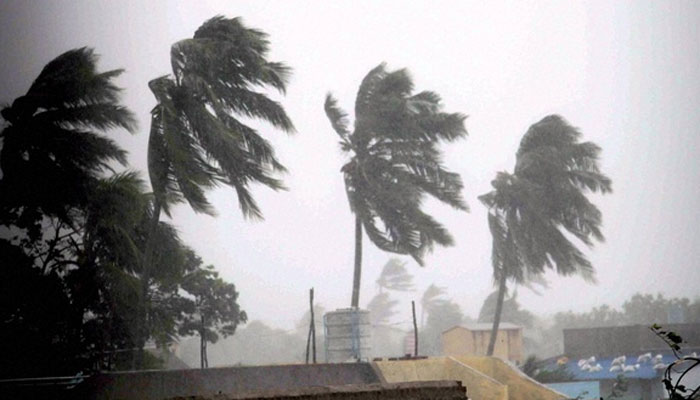Losses from natural disasters have surged
October 12, 2018 | Expert Insights

The U.N. office for disaster risk reduction said that worldwide reported economic losses from climate-related disasters surged to total nearly $2.9 trillion over the past 20 years.
Background
Climate change is a disruption in the statistical distribution of weather patterns when that variation lasts for an extended period of time. Global warming is the observed century-scale rise in the average temperature of the Earth's climate system and its related effects. Multiple studies published in peer-reviewed scientific journals show climate-warming trends over the past century are likely due to human activities. In addition, most of the leading scientific organizations worldwide have issued public statements endorsing this position.
Climate change poses a fundamental threat to the places, species and people’s livelihoods. Sea levels are rising and oceans are becoming warmer. Longer, more intense droughts threaten crops, wildlife and freshwater supplies. From polar bears in the Arctic to marine turtles off the coast of Africa, our planet’s diversity of life is at risk from the changing climate.
Analysis
The U.N. office for disaster risk reduction said Wednesday that worldwide reported economic losses from earthquakes, volcanic eruptions, floods, hurricanes and other climate-related disasters surged to total nearly $2.9 trillion over the past 20 years.
UNISDR, as the office is known, said the reported loss of resources and assets like homes, factories and farms due to more frequent and widespread climate-related disasters rose 151 percent compared to the previous 20-year period.
“There is a very sharp increase in the number of climate-related events, which are actually creating 77 percent of the total direct economic losses caused by disasters,” said Ricardo Mena, a UNISDR official. “This is really very alarming information.”
Climate-related disasters — such as from the impact of floods, droughts, and heat waves — accounted for $2.25 trillion of the total. That was up from $895 billion reported between 1978 and 1997.
The rest of the total came primarily from tsunamis and earthquakes — so-called geophysical disasters. The U.S. topped the list at over $944 billion — nearly twice the figure from China, in second. Japan, India and Puerto Rico completed the top five.
The report came as the south-eastern United States appeared to face another possible disaster as Hurricane Michael made landfall from the Gulf of Mexico
The agency cautioned Wednesday that the 1998-2017 figures rely on official reports, so more economically powerful countries are generally overrepresented. Insurance is less widespread in developing countries.
UNISDR’s tally is based on confirmed documentation, meaning the $2.9 trillion is likely only a fraction of actual losses.
Counterpoint
The report points to the damage caused by natural disasters in the past 20 years but it does not highlight the vastly improved resilience-and-recovery capacities of major urban centres over the past two decades.
With the development of more ‘greener’ technology solutions, many cities in Asia and Africa have taken huge strides towards mitigating the impacts of climate-based natural disasters. Additionally, the technology boom in Asia, coupled with grassroots-level innovation on environmental conservation across the Southern Hemisphere, will contribute significantly in mitigating large scale damage to urban centres.
In addition, the adoption of the Paris Agreement (2015) is slated to have a large-scale, positive impact on global resilience-and-recovery capacity. The Paris Agreement is an agreement within the United Nations Framework Convention on Climate Change (UNFCCC) dealing with greenhouse gas emissions mitigation, adaptation and finance - starting in the year 2020. The Agreement aims to respond to the global climate change threat by keeping a global temperature rise this century well below 2 degrees Celsius above pre-industrial levels. The targets set under the Paris Agreement will promote a more sustainable development-oriented approach to growth.
Assessment
Our assessment is that the report highlights the combined losses of previous environmental disasters but also offers hope of correcting the negative impacts of climate change in the immediate future. The Paris agreement is a credible and comprehensive agreement which address major issues listed in the UN report and enjoys the support of almost all countries. We believe that if humanity as a whole does not adopt environmentally-friendly technology or more eco-friendly practices in urban planning, we can expect a lot more damage to our institutions in the event of a natural disaster. We also feel that the recent green technology revolution in the grassroots level will encourage a more inclusive method of sustainable existence.








Comments